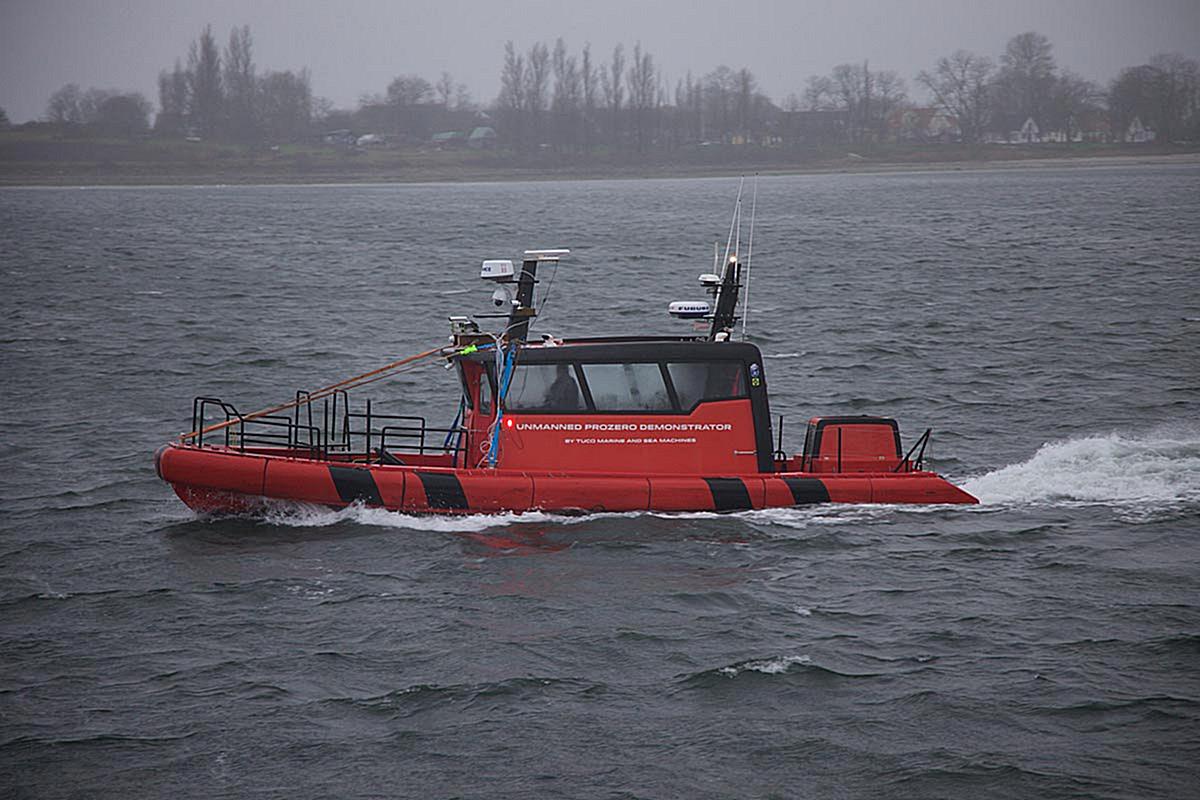Demo – Sea tests & demonstration: Tuco Marine
Task leader: DTU Electrical Engineering
Task number: 2.7
This task is focusing on
- Establishing a fast prototyping and testing environment and conduct test and validation of algorithms for one and two vessel situations.
- Collecting data to aid design of seamanship and supervision modules.
- Testing seamanship and supervision algorithms at sea. The aim is to get fast from lab to sea in a plug-and-play fashion and validate developed method in real life, without the risk of incurring delays on vessels in service.
Update from task partners
TUCO Marine and DTU are performing sea-trials with sensor equipment to test state-of-the-art technology under real-world conditions. The purpose is to investigate the performance of sensors and algorithms for navigational aid and autonomous navigation. DTU sensor platform B-0 is mounted on a designated instruments mast on a TUCO Prozero test vessel.
The mast contains cameras in different spectral ranges, including forward looking long wave infrared (night vision), an FMCW radar unit, GPS compass, AIS receiver and inertial measurement unit to measure roll and pitch angles, turn rates and accelerations.
In addition to verifying the different instruments performance, recordings from the sea-trials are essential to train deep-learning networks with real data in all relevant weather and light conditions. A pan-tilt-zoom camera gives the intelligent algorithms the same information that a human navigator obtains through binoculars, i.e. does day or night signals indicate that the vessel is performing a task where it is unable to manoeuvre, or is under sail, such that own vessel has the duty to alter heading or speed to pass at a safe distance.
Task partners
DTU Electrical Engineering
TUCO
